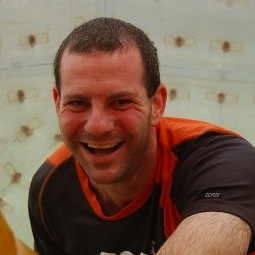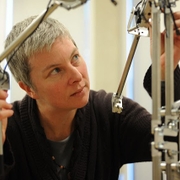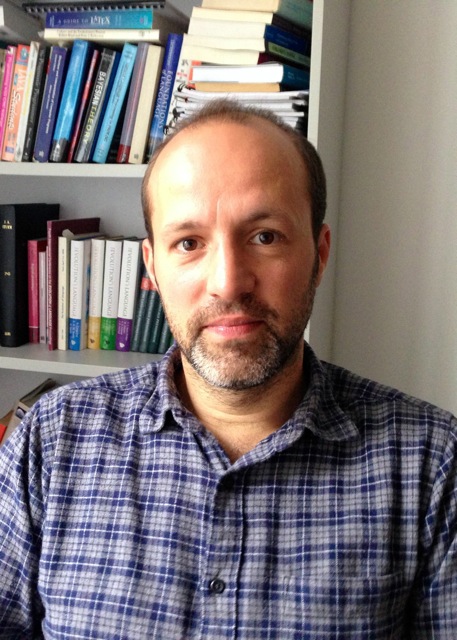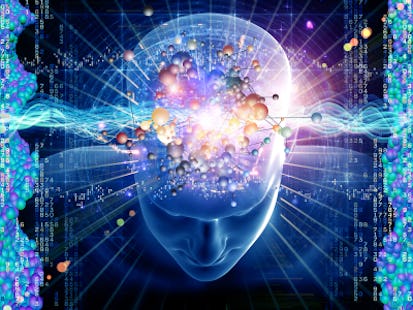- Level Foundation
- Duration 11 hours
- Course by The University of Edinburgh
-
Offered by

About
Course Description What is our role in the universe as human agents capable of knowledge? What makes us intelligent cognitive agents seemingly endowed with consciousness? This is the second part of the course 'Philosophy and the Sciences', dedicated to Philosophy of the Cognitive Sciences. Scientific research across the cognitive sciences has raised pressing questions for philosophers. The goal of this course is to introduce you to some of the main areas and topics at the key juncture between philosophy and the cognitive sciences. Each week we will introduce you to some of these important questions at the forefront of scientific research. We will explain the science behind each topic in a simple, non-technical way, while also addressing the philosophical and conceptual questions arising from it. Areas you’ll learn about will include: Philosophy of psychology, among whose issues we will cover the evolution of the human mind and the nature of consciousness. Philosophy of neurosciences, where we’ll consider the nature of human cognition and the relation between mind, machines, and the environment. Learning objectives Gain a fairly well-rounded view on selected areas and topics at the intersection of philosophy and the sciences Understand some key questions, and conceptual problems arising in the cognitive sciences. Develop critical skills to evaluate and assess these problems. Suggested Readings To accompany 'Philosophy and the Sciences', we are pleased to announce a tie-in book from Routledge entitled 'Philosophy and the Sciences for Everyone'. This course companion to the 'Philosophy and the Sciences' course was written by the Edinburgh Philosophy and the Sciences team expressly with the needs of MOOC students in mind. 'Philosophy and the Sciences for Everyone' contains clear and user-friendly chapters, chapter summaries, glossary, study questions, suggestions for further reading and guides to online resources. Please note, this companion book is optional - all the resources needed to complete the course are available freely and listed on the course site.Modules
Link to Philosophy and the Physical Sciences
1
Readings
- Link to Philosophy and the Physical Sciences
This week, we will explore scientific interpretations of how our minds evolved, and some of the methodologies used in forming these interpretations. We will relate evolutionary debates to a core issue in the philosophy of mind, namely, whether all kn
3
Videos
- 1.1 Stone-Age Minds Part I
- 1.2 Stone-Age Minds Part II
- 1.3 Stone-Age Minds Part III
1
Readings
- Handout
Week 1 Quiz
1
Assignment
- Week 1 Quiz: Do our modern skulls house stone-age minds?
Additional Reading
1
Discussions
- Evolutionary psychology
4
Readings
- Recommended readings
- The evolution of language
- Niche Construction
- Chimpanzee culture social learning
@Edinburgh
1
Readings
- Related work by Philosophy staff at the University of Edinburgh
One of the hardest problems in science is the nature of consciousness. We know that we have consciousness. We do not just blindly process information, make discriminations, take actions. It also feels a certain way to do so from the inside. Why do cr
2
Videos
- 2.1 What is Consciousness Part I
- 2.2 What is Consciousness Part II
2
Readings
- Handout from Mark's lectures
- Slides from David's lectures
Week 2 Quiz
1
Assignment
- Week 2 Quiz: What is consciousness?
Additional Readings
1
Discussions
- The hard problem of consciousness
4
Readings
- Recommended readings
- Access/Phenomenal consciousness distinction
- Overview of philosophical problems concerning consciousness
- Limitations of perceptual awareness
@Edinburgh
1
Readings
- Related work by Philosophy staff at the University of Edinburgh
Recent years have seen a revolution in the kinds of tasks computers can do. Underlying these advances is the burgeoning field of machine learning and computational neuroscience. The same methods that allow us to make clever machines also appear to h
2
Videos
- 3.1 Intelligent Machines Part I
- 3.2 Intelligent Machines Part II
1
Readings
- Find and share news on intelligent machines!
Week 3 Quiz
1
Assignment
- Week 3 Quiz: From intelligent machines to the human brain
Additional readings
1
Discussions
- The predictive brain
6
Readings
- Recommended readings
- Computational theory of mind and connectionism
- The McGurk effect video
- The Ames illusion video
- Motion perception
- The rotating mask illusion video
@Edinburgh
1
Readings
- Related work by Philosophy staff at the University of Edinburgh
Cognitive Science has recently taken a strongly 'embodied turn', recognizing that biologically evolved intelligence makes the most of the opportunities provided by bodily form, action, and the material and social environment. This session explores th
2
Videos
- 4.1 Embodied Cognition Part I
- 4.2 Embodied Cognition Part II
1
Readings
- Lecture Slides
Week 4 Quiz
1
Assignment
- Week 4 Quiz: Embodied cognition and the sciences of the mind
Optional Peer Review
1
Peer Review
- Write an essay: Philosophy of the Cognitive Sciences
Survey
1
Readings
- Post-Course Survey
Additional readings
1
Discussions
- A Tale of Two Robots
5
Readings
- Recommended readings
- Embodied Cognition further reading
- Passive-dynamic walkers video
- The current crop of robots
- Design your own robot
@Edinburgh
1
Readings
- Related work by Philosophy staff at the University of Edinburgh
Auto Summary
Discover the intersection of philosophy and cognitive sciences with this engaging course led by Coursera. Explore key questions about human knowledge, intelligence, consciousness, and cognition through weekly modules. Ideal for those interested in philosophy of psychology and neurosciences, the course offers a well-rounded understanding of conceptual problems in cognitive sciences. With optional readings and critical skill development, it's perfect for learners at the foundational level. Subscription options include Starter and Professional plans, making it accessible for everyone.

Professor Michela Massimi

Dr. Alasdair Richmond

Dr. Suilin Lavelle

Dr David Carmel

Dr Mark Sprevak

Professor Duncan Pritchard

Professor Andy Clark

Professor John Peacock

Professor Barbara Webb

Dr Kenny Smith

Dr Peggy Series


